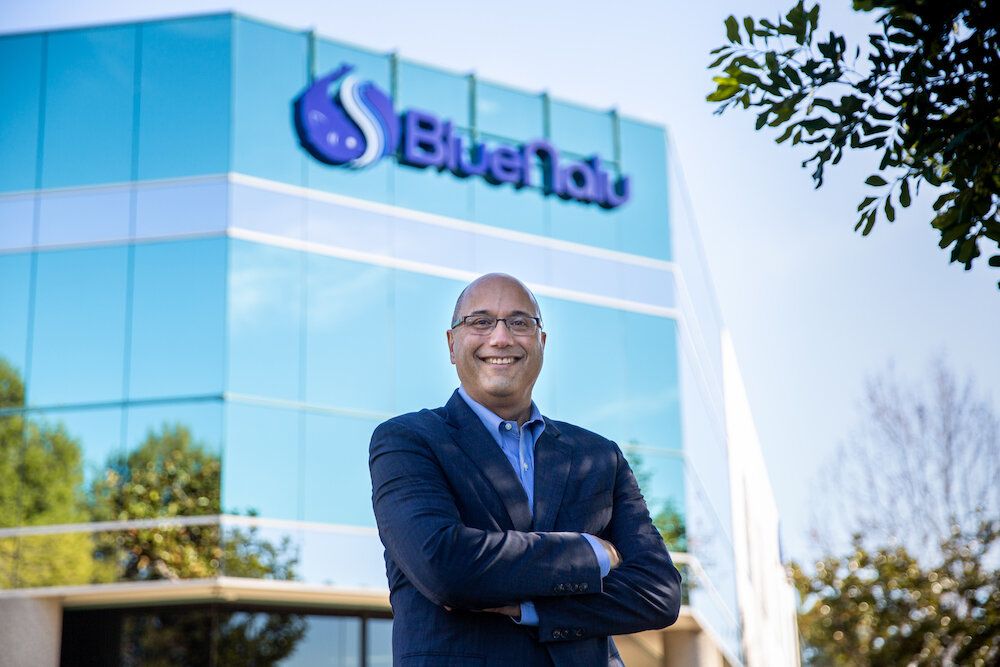San Diego-based BlueNalu just raised $60 million in a convertible note financing, which the startup claims is the biggest funding round yet in the ‘lab-grown’ seafood space.
Rage Capital led the funding, with a host of new and existing investors joining in including KBW Ventures, Lewis & Clark Agrifood, Radicle Growth, and Siddhi Capital, to name just a few.
US food and drink manufacturer Rich’s and seafood giant Thai Union also participated in the round.
Launched in early 2018, BlueNalu set out to produce seafood products cultured from animal cells – specifically, ‘fin fish,’ as opposed to shellfish or other marine invertebrates. Founder Lou Cooperhouse — a food industry veteran with past stints at companies including Campbell’s, Conagra, and Nestlé — had become “fascinated” with the emerging cell-based meat industry. But he felt the focus of many startups on cellular beef, chicken, and other land animals was overlooking what he viewed as the biggest opportunity of all: cellular seafood.
“It all began with work on meat and poultry, and I realized all the founders were out of the biopharma industry, not food, and weren’t really consumer product people. I thought the opportunity was in fish,” he tells AFN.
“It wasn’t a category at that point. There was no intellectual property, no-one had propagated fish cells before. My argument was, if you could grow stable cell lines, ultimately it could be a far [bigger] opportunity.”
Cooperhouse — now BlueNalu’s president and CEO — and his team set out to develop a platform technology and supply chain solution for the production of cell-based fish, initially targeting the “whole-muscle filet category [which] commands a premium price point – and arguably, is a bit simpler in structure than cell-based beef or chicken,” he says.
Commitment to Asia
The startup will use the proceeds of the convertibles round to complete the construction of a 40,000 square foot pilot manufacturing facility in San Diego, which is expected to be churning out cultured mahi mahi towards the end of this year. Bluefin tuna is slated to follow in 2022.
“We’re launching one species after the next, in a few forms — cube, filet, and sashimi – really as a way to gain market insight, but in an actual commercial facility of pilot size,” Cooperhouse explains.
The funding will also help BlueNalu complete a US Food & Drug Administration regulatory review before initiating marketplace testing in various foodservice establishments throughout the country.
That said, it has already set its sights squarely beyond US shores. The startup’s global go-to-market strategy has seen it form partnerships and joint ventures with a number of incumbent food manufacturing and retail companies. Two of the biggest of these partnerships are centered on Asia, with South Korea’s Pulmuone and Japan’s Sumitomo (the latter’s Americas unit has also invested in the startup.)
“We’re really, really focused on Asia. We want a presence there, and it’ll [host] one of our very first factories – I’ll make that commitment now,” Cooperhouse says.
“Frankly, per capita consumption of seafood in Asia is about three to five times higher than Europe or North America. The Asia market is really where we see the lion’s share of our growth.”
It won’t be alone in that market, though. Startups from the region are also racing to be the first to put products on the shelf, including Singapore’s Shiok Meats and Hong Kong’s Avant. However, the former is focused on cultured crustacea, while the latter has only just moved onto filets after starting with fish maw. This still gives BlueNalu the chance to be first in its specialist niche, Cooperhouse argues.
‘Let the market work itself out’
As for why BlueNalu opted for debt this time rather than an equity raise, he says the fact that there are “so few companies in this space to benchmark against” makes it more difficult to put a valuation on the business, meaning that convertible notes made more sense for the startup and its investors.
“When we raise a Series B round, our objective is that we will have product in commerce with regulatory clearance in the US, coming from a small-scale factory,” he says.
“Right now, we are the first of our kind. So we said: let’s let the market get more organized over the next year, let the market work itself out, and in the meantime we’ll take out a convertible note, develop a lot more partnerships, and — hopefully — get regulatory clearance in the US and Asia.”
Cooperhouse isn’t sure when that next equity round will come. But he says BlueNalu now has enough capital and a “more than adequate” timeframe to make sure its valuation is appropriate when that time comes.
He also believes that the startup’s mission to completely overhaul seafood protein production and make it more sustainable all round will ensure it is able to keep investors, corporate partners, and consumers on board.
“Our [current global] supply chain is so restricted that we simply sell consumers what we have. With BlueNalu’s model, we sell consumers what they want,” he says.
“It essentially democratizes seafood. Right now, there’s a very small amount of bluefin tuna in the world’s oceans. But we can make it in factories that are closer to consumer demand. We’ll no longer be restricted by 10,000 mile shipments, 20% to 30% bycatch, and low yields – we’ll have a bluefin tuna product that can shipped locally, with an environmental footprint that is almost non-existent.”
Comment? News tip? Story idea? Email me at [email protected] or find me on LinkedIn and Twitter





